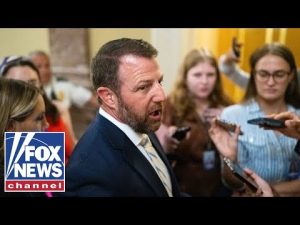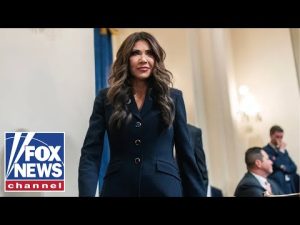In a recent discussion on trade relations with Australia, the stark realities of America’s economic policies came to the forefront. This conversation highlighted the troubling impact of tariffs imposed on allies, raising significant concerns about national security and trade stability. A leading senator pointed out the contradictions in these policies, especially as the United States enjoys a beneficial trade surplus with Australia and has a free trade agreement that should foster cooperation rather than conflict.
It is baffling how, despite having a trade surplus with one of our closest allies, the U.S. government decided to hit Australia with a 10% tariff. This unjust move seems to signify an alarming trend where friends and foes face the same punitive measures. Rather than working together to strengthen our economies and enhance mutual security, the current administration appears to be sabotaging relationships that have long been built on trust and pragmatism. The senator’s remarks illuminated how such tariffs could fracture essential alliances and undermine our position in a complicated global market.
Further complicating matters, the Australian government has been known to impose its own restrictions, notably banning imports of American beef and pork. This creates a lopsided scenario where both nations are seemingly at odds despite the existing trade agreement. The senator argued fervently that placing tariffs on allies like Australia is not only economically counterproductive but an insult to a country that has proven to be a staunch partner in global security efforts.
Moreover, the larger picture of the national deficit looms dauntingly over these discussions. With a staggering $1.2 trillion deficit inherited from President Biden, it would seem logical to foster relationships that could help rejuvenate the economy rather than stymie them with tariffs. There is an unmistakable urgency to rectify these policies before they lead the economy into a state of decline. As the senator ominously pointed out, without prudent changes, the future may start to resemble “hospice” — a grim forecast for American prosperity.
The implications of this tariff strategy extend beyond economy and trade. They reach into the very backbone of national security. Trust is foundational in international relations, and when that trust is deteriorated by ill-conceived economic policies, the United States risks losing its position as a global leader. Conservatives must hold the current administration accountable for these missteps and advocate for a return to policies that strengthen our partnerships and safeguard American interests. The need for immediate change is clear, and only through concerted effort can America hope to rebuild trust and stimulate economic growth.







